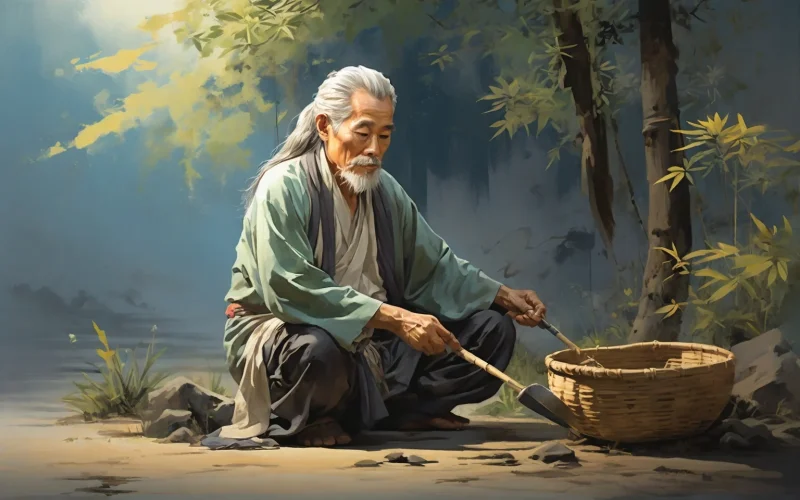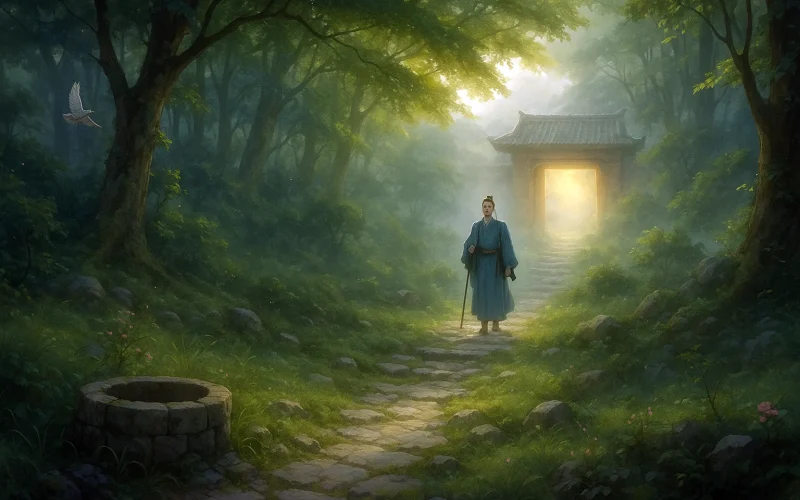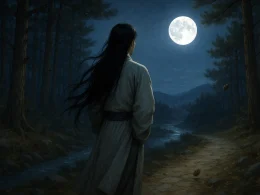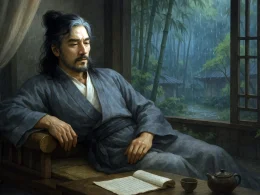I pass your house, old friend, yet fail to see—
Why in twilight’s glow, you plant these pines?
What need have you, whose years outstrip the tree,
To sow slow shadows for far distant times?
Original Poem
「观邻老栽松」
李端
虽过老人宅,不解老人心。
何事残阳里,栽松欲待阴。
Interpretation
Composed during Li Duan's rural sojourn, this poem crystallizes a moment of revelation upon witnessing an elderly neighbor planting pine saplings—an act rich with symbolism in Tang culture, where pines embodied moral fortitude and enduring vitality. Through this mundane yet profound vignette, the poet contemplates life's transience, legacy, and the quiet heroism of ordinary existence.
First Couplet: "虽过老人宅,不解老人心。"
Suī guò lǎorén zhái, bùjiě lǎorén xīn.
Though oft I passed his cottage by,
The old man's heart remained unread.
The opening lines hum with the tension between observation and understanding. The poet's admission of incomprehension ("unread" 不解) establishes an intellectual journey—from detached witness to enlightened participant—that structures the entire meditation.
Second Couplet: "何事残阳里,栽松欲待阴?"
Héshì cányáng lǐ, zāi sōng yù dài yīn?
Why in sunset's lingering glow
Does he plant pines for shade unborn?
Here, time's paradox unfolds: "sunset's glow" (残阳) paints the man's twilight years, while "shade unborn" (待阴) gestures toward a future he'll never witness. The rhetorical question ("Why" 何事) bridges curiosity and awe, revealing the act as both earthly labor and metaphysical testament—a mortal sowing immortality.
Holistic Appreciation
This deceptively simple four-line poem captures profound depth within an ordinary scene—an elderly man planting a pine tree at dusk. Through masterful juxtaposition of imagery like "fading sun," "pine tree," and "awaiting shade," the poem becomes a meditation on twilight years, unfulfilled aspirations, and the passage of time.
Opening with the poet's initial puzzlement—"though I passed by, I didn't understand"—the verse builds toward revelation: the old man plants not for his own benefit, but as an act of legacy, leaving shade for future generations or perhaps embodying steadfast dignity in life's autumn.
Tone remains restrained yet resonant; without explicit commentary, the poem lingers with quiet gravity. Beyond portraying an elder, it becomes the poet's contemplation on life's purpose—a subtle prompt for readers' own reflection.
Artistic Merits
- Philosophy Embodied in Scene: A mundane act transforms into poetic metaphor, proving simplicity's power to convey universal truths.
- Questioning Structure: The rhetorical arc—from confusion to realization—invites readers into shared contemplation.
- Precise Symbolism: "Fading sun," "pine," and "shade" coalesce into a potent visual metaphor for mortality and endurance.
- Unadorned Profundity: Eschewing classical allusions, the poem achieves depth through elemental imagery and understated wisdom.
Insights
Even in life's twilight, hope persists—not through grand gestures, but quiet cultivation, like planting a pine at sunset. Its shade won't comfort the planter, yet becomes his covenant with the future. Li Duan, through a neighbor's act, prompts us to reconsider time's value: how ordinary moments contain extraordinary meaning when infused with selfless intention. The poem reminds us that life's most essential truths often reveal themselves in unassuming, earth-stained hands.
About the Poet
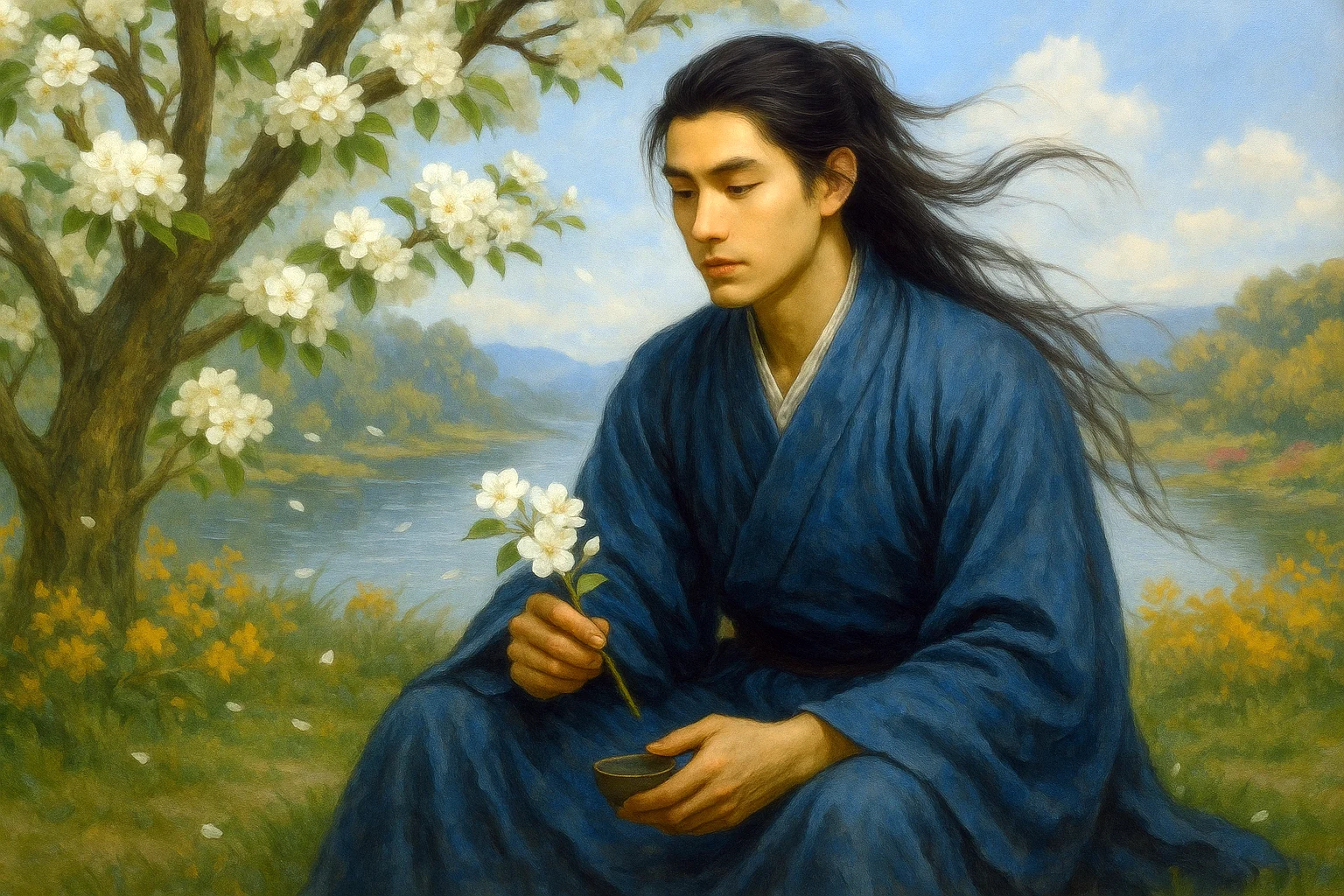
Li Duan (李端, c. 743–785), a native of Zhaoxian in Hebei Province, was among the "Ten Literary Talents of the Dali Era" during the Mid-Tang period. He excelled particularly in five-character regulated verse, crafting poetry of refined elegance and subtle nuance. His works frequently explored themes of reclusive living and the melancholy of separation, with over 250 poems preserved in the Complete Tang Poetry anthology.





